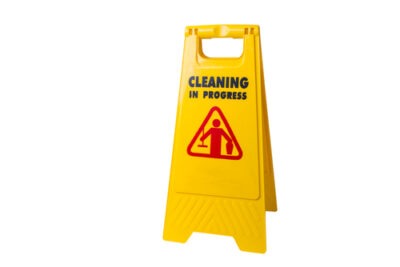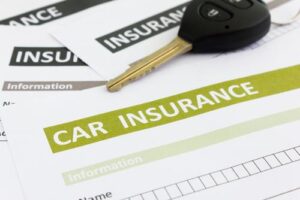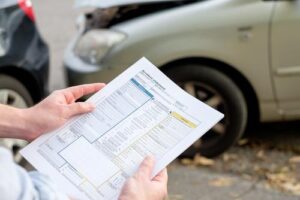
Slip and fall accidents can occur at any time, especially in restaurants like Denny’s where there are many potential hazards. Unfortunately, many slip and fall victims don’t take legal action because they blame themselves or think they don’t have a case. If you were hurt in a Denny’s, it’s best to speak with a Denny’s slip and fall accident and injury lawyer in Georgia before assuming one way or the other.
At John Foy & Associates, we have helped many injury victims win compensation for their damages. Many times, our clients are surprised to find out they have a stronger case than they realize. Plus, we don’t take a fee unless we win you money—so there is no risk to work with us.
Contact us today to schedule a FREE consultation so we can look at your case and discuss your best options. Call us at (404) 400-4000 or contact us online to get started with your FREE consultation today.
Quick Facts About Denny’s Restaurants in Georgia
Denny’s is an American diner-style restaurant chain with more than 1,600 locations in the United States and other counties like Canada, Mexico, Japan, and the United Kingdom. Denny’s restaurants in Georgia can be found in Augusta, Brunswick, Cordele, Byron, Columbus, Jackson, Kingsland, Lake Park, Locust Grove, Resaca, Richmond Hill, Norcross, Savannah, and Valdosta.
Denny’s was originally opened as a coffee shop called Danny’s Donuts, but they now serve breakfast, lunch, and dinner options 24 hours a day, seven days a week. Most of Denny’s locations are now franchise-owned. Their menu items include pancakes, crepes, omelets, and other breakfast items, burgers, steaks, seafood, sandwiches, salads, and more.
Since Denny’s restaurants are open all the time, at all hours, a slip and fall accident could happen at any time. If a manager or employee drops the ball on watching for and cleaning up injury hazards, the restaurant can be liable for any accident that occurs. This is why, if you were hurt in a Denny’s, you may have a valid case.
Get the strong arm
How a Slip and Fall Claim Works Against Denny’s in Georgia
A slip and fall claim is a type of personal injury case. Personal injury cases fall under the umbrella of tort law. According to Georgia Code § 51-1-1, a tort in Georgia is “the unlawful violation of a private legal right” or “the violation of a public duty.”
Slip and fall cases are based on negligent torts. When someone’s negligence has led to an injury, the negligent party is responsible for the damages. So, if someone working for Denny’s is not careful enough to act in a way that doesn’t lead to harm for customers, the restaurant may be legally liable.
Filing a personal injury claim, which is also known as a slip and fall claim in this context, means you are intending to prove the restaurant was negligent, responsible for your accident, and now owes you damages.
Three Important Questions to Ask About a Slip and Fall Accident
When evaluating whether or not you have a valid slip and fall claim, the following questions will need to be asked. A Denny’s slip and fall accident and injury lawyer will also examine these factors when determining the validity of your case. (At John Foy & Associates, we’ll do this during a FREE consultation—call (404) 400-4000 to schedule yours today.)
1. What Caused the Slip and Fall Accident?
You will need to look at what exactly caused your slip and fall accident at Denny’s. There are many common hazards or dangerous conditions that can be present in a restaurant, such as:
- Wet and slippery floors
- Uneven flooring
- Spilled food or beverage items
- Grease or oil
- Curled up, loose, or torn carpeting or rugs
- Poor lighting
- Water or urine on bathroom floors
- And more
You will need to be able to show in your slip and fall claim what caused your accident and how the hazard got there. Sometimes, it’s a hazard that the restaurant would need to clean up. Other times, one or more employees might have created the hazard themselves.
2. Could Denny’s Have Prevented the Accident?
For the restaurant to be negligent in your accident, they must have been able to prevent it—but failed to do so. For example, the manager or employees must have had enough time to see a spilled beverage on the floor and clean it up to prevent a fall. Or, the manager or employees must have known they should act in a certain way to prevent a hazard from forming.
To prove negligence, your claim will have to show that the restaurant failed in its duty to keep the hazard from harming you. That includes showing that they had an opportunity to fix, clean up, or prevent it from causing your injury accident.
3. Could You Have Avoided the Slip and Fall Hazard?
In Georgia, injury victims also have a certain duty of care (Georgia Code section 51-11-7). You may not be eligible for damages if it’s obvious you could have avoided the hazard through regular carefulness.
The restaurant or their insurance company may try to blame you for at least some of the accident, hoping that it will reduce or remove their liability. However, an experienced injury lawyer will work to present your case in a way that shows the hazard couldn’t have been avoided.
Damages You Can Include in Your Denny’s Slip and Fall Claim
If you can show that the restaurant was negligent in your accident, you have the right to seek compensation for damages like:
- Doctor bills
- Hospital bills
- Prescription medications
- Travel to and from appointments
- Physical therapy
- Lost wages or loss of earning capacity
- Mental anguish or other pain and suffering
Your lawyer will know how to gather evidence of these damages. The goal is to pursue full compensation for all of your costs from the accident you didn’t cause.
Talk to a Denny’s Slip and Fall Accident and Injury Lawyer in Georgia for Free Today
Don’t try to handle the aftermath of a slip and fall accident alone. John Foy & Associates can look at your case and help you create a plan of action. We do not charge you anything until we win money in your case, and the consultation is always FREE.
Call us today at (404) 400-4000 or contact us online now to schedule your FREE consultation.
404-400-4000 or complete a Free Case Evaluation form





